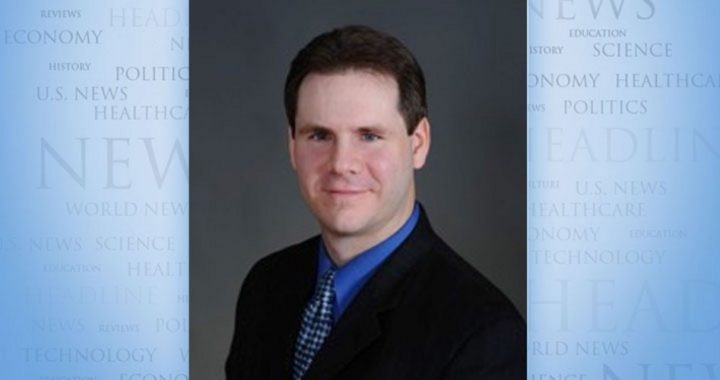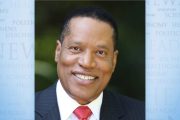
We’ve heard much during the Wuhan flu crisis about a “worst case scenario” of two million dead Americans, a staggering number. But missing from the national conversation is something equally important:
What’s the worst case scenario given our present course of action, largely locking down the country and freezing life like an insect stuck in amber?
What if worse coming to worst means a great depression, descent into tyranny, millions more dead from other causes, and a permanently impoverished nation?
Almost the entire virus debate has centered around whether the experts are correct about the infectivity and virulence of the disease and in their projections (which have often been drastically wrong). But even if we assume that the experts having the government’s ear — and there are dissenters who don’t — are absolutely inerrant in their expressed judgments, there’s a problem with just “listening to the health professionals’” prescriptions:
Like most everyone else, these individuals have only a narrow range of expertise; they are epidemiologists, virologists, infectious disease specialists, etc.
They are not epidemiologists-cum-philosophers/political scientists/sociologists/economists.
So they provide counsel on how to achieve a narrow goal contemplated from a narrow perspective. This is not a put-down. It is their job to do just that.
Congruent with this, these experts consider the health related consequences of the disease, not the civilizational-health related consequences of their cure — which may be worse than the disease.
The latter is the job of statesmen, commentators, academics, and the wider population. All these groups, unfortunately, are found wanting in this.
Unemployment claims are at a record high, but I don’t have to tell you how the current lockdowns are ravaging our economy. Many businesses and jobs will never come back, yet this concern not only is just the iceberg’s tip, it isn’t even, as critics may say, just about “money” — because money isn’t just about “money.”
Money represents resources, people’s capacity to obtain food, shelter, clothing, health care, education, and everything else that preserves life and makes it worth living. Note here that poverty is associated with a host of negative health and health-related risks, such as a higher incidence of manifold diseases, depression, anxiety, stress-related disorders, drug and alcohol abuse, suicide, domestic violence, child abuse, and crime.
Yet even more must be considered. Remember now that if the following seems radical, it is a worst case scenario. And if we can consider the worst case scenario on one side of the equation, we must for balance and perspective consider the worst case scenario on the other side as well.
What if locking down the nation means causing a great depression lasting a decade or more?
What if this economic disaster leads, as history teaches it can, to the rise of demagogues and loss of freedom?
What if there are consequently millions more deaths from other causes due to economic malaise and descent toward tyranny?
What if, in other words, we essentially destroy our civilization as we know it?
Will it have been worth it to ensure there’d be fewer Wuhan virus deaths — even two million, shocking though that number is? Civilizational destruction, something permanent, would be a steep price to pay to combat a pandemic, something temporary.
Know that I’m not insensitive to the vulnerable’s plight. Near and dear to me are two people in an extreme high-risk category and a handful of others somewhat at risk, and I have an in-law physician relative who contracted the virus, began treating herself with hydroxychloroquine, and is currently hospitalized. But I also recognize the truth of economist Thomas Sowell’s observation that sometimes in life “there are no solutions; there are only tradeoffs.” Are we making the right tradeoff now?
I’ll emphasize that my worst case scenario isn’t at all fanciful. Many are concerned about a depression resulting from our lockdowns and about the erosion of freedom as people, as people will, trade liberty for security. In fact, the New York Times, of all entities, recently ran a headline warning, “For Autocrats, and Others, Coronavirus Is a Chance to Grab Even More Power.”
“Leaders around the world have passed emergency decrees and legislation expanding their reach during the pandemic,” the paper writes in its subhead before asking, “Will they ever relinquish them?”
Anyone who grasps the nature of power — and of the power hungry — won’t bet the answer is yes.
Now ask yourself: If the given amount of power is currently being seized, what would happen in an infinitely worse situation such as lockdown-caused depression and social upheaval?
Speaking of autocrats, the mainstream media have rightly been castigated for doing despotic China’s bidding and touting its “response” to the virus; never mind that China created this problem and that its response’s immediate effectiveness is actually unknown because Beijing lies like it breathes. But what if China has responded rightly, not in its tyrannical measures but in one respect?
What if Beijing’s apparent decision to get people back to work and accept virus-related deaths leaves it stronger over the long term? There is some possibility, a scary one, that China could emerge from this as the world’s superpower — a status it craves — under our worst-case scenario.
Also consider Sweden. That it continues commerce and life largely unchanged and is striving for “herd immunity” may be instructive. Are we just prolonging the inevitable?
Of course, one lockdown motivation is to slow the virus’s spread so that hospitals aren’t overwhelmed. But Dr. Anthony Fauci, head of the National Institute of Allergy and Infectious Diseases, said Wednesday that there won’t be a true turning point until a vaccine is developed. Yet some say this could be 18 months away, an eternity in lockdown terms.
In the meantime, restoring normal commerce and freedom without experiencing increased virus contagion appears unlikely. But since such restoration would be beneficial, focusing on developing herd immunity while pursuing wide-scale testing and the insulating of vulnerable groups may be the wiser course.
Remember, too, that we’ve been through this before. During the Spanish flu pandemic of 1918-19, 675,000 Americans died; adjusted for today’s US population this amounts to a bit more than two million people — exactly our worst case scenario number.
We weathered that pandemic, of course. But people were far different then, and, correspondingly, we’re far different politically today. If President Trump advocated the Swedish model and there were hundreds of thousands of deaths, never mind two million, every one would be laid at his doorstep and he’d likely be ousted from office (as it is, it was already suggested last month that Trump may be guilty of “negligent homicide”). The same could befall any governor acting likewise, never mind that he might have helped save the future — because the alternate future would never be known.
This is why I know certain things. No, I don’t have definitive answers; this is a fluid, serious situation with many unknowns, and we all should act responsibly and not claim knowledge we don’t possess. But I do know some questions, as posed above, that should be asked and maturely debated. I also know this won’t likely happen, given man’s nature in general and the state of our politics and media in particular.
This is why we’d better hope for a highly efficacious Wuhan virus treatment — and fast. Because if we’re going to lockdown our nation for months on end, well, we may learn the hard way that we might as well have just thrown away the key.
Contact Selwyn Duke, follow him on Gab (preferably) or Twitter, or log on to SelwynDuke.com.




